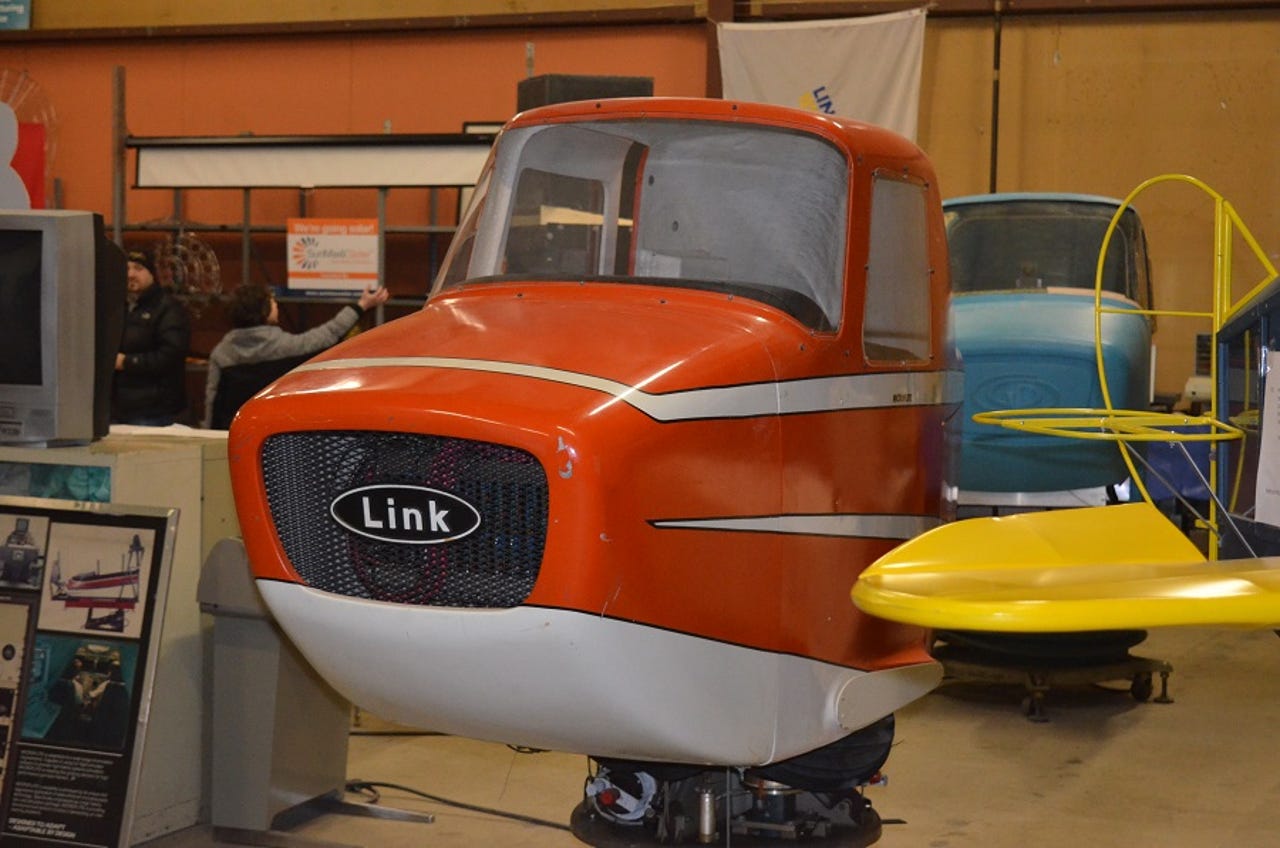American Link flight simulators win Britain's top computer conservation award


TechWorks has won the Tony Sale Award for bringing back to life a Second World War analogue flight simulator, a 1960s-era General Aviation Trainer (GAT-1), and an all-digital Super GAT trainer from the 1980s. The three pioneering pilot trainers are available to visitors to the TechWorks museum in Binghamton in New York State.
tech that changed us
Britain's Computer Conservation Society holds a competition for the Tony Sale Award every other year to remember the man who, among other things, led the reconstruction of the Colossus computer hosted at The National Museum of Computing (TNMOC) at Bletchley Park, north of London.
Also: Hitler's "unbreakable" encryption machine -- and the Bletchley Park devices which cracked the code
Binghamton has been described as "the birthplace of Virtual Reality" because it is where Ed Link built the first Link flight simulator. Link's father owned a pipe organ and player piano factory, and Link -- who already knew how to fly -- thought that bouncing on an organ bellows was a bit like flying. "By 1929, he had a patent for an 'airplane' that balanced on two pairs of organ bellows and was turned by player piano motors," according to TechWorks' history.
Link set up a pilot-training school, and in 1934, started selling Link trainers to the American armed forces. By the end of the Second World War, his company had sold around 10,000 trainers, and helped train tens of thousands of pilots to fly by instruments.
Professor Martin-Campbell-Kelly, chair of the TSA judging panel, said in a statement:
In reproducing novel computing applications which the public can experience first-hand, the TechWorks team gives us an unforgettable impression of the early days of virtual worlds. Excellent research, skilled implementation and an impactful result make this a superb example of the power and relevance of computer conservation, something that I know would have met with the late Tony Sale's enthusiasm and approval.
The previous winners of the Tony Sale Award, sponsored by Google UK, were the Heinz-Nixdorf MuseumsForum, for a reconstruction showing how ENIAC was programmed; the California-based Computer History Museum's IBM 1401 Demo Lab and the Free University of Berlin's Z1 Architecture and Algorithms, a virtual reconstruction of Konrad Zuse's 1930's Z1 mechanical computer; and David Link's computer art installation, Loveletters.
TechWorks has restored a GAT-1 flight simulator from 1967.
Previous and related coverage
Colossus veteran salutes Bletchley Park's first cyber-security graduates
Some of the first students to complete Qufaro's cyber-security course were presented with their certificates by a 94-year-old Colossus code-breaking veteran. The online course is a step towards setting up a cyber-security college at Bletchley Park.
Living Machines: A quick history of robots (Part I)
Derided as abominations or celebrated as ingenious feats of human engineering, robots have been around longer than you think.
Bletchley Park in 360: See inside Britain's Enigma-breaking HQ CNET
CNET takes you on an immersive VR tour of Bletchley Park, where Alan Turing and his colleagues smashed Nazi encryptions in World War II.
Technology that changed us: The 1970s, from Pong to Apollo
In this 50-year retrospective, we're not just looking at technology year by year, we're looking at technologies that had an impact on us, paved the way for the future, and changed us, in ways good and bad.
The American Computer and Robotics Museum: A gem in the Treasure State
After 25 years it's still going strong.
The women who created the technology industry TechRepublic
The first computer programmers and most celebrated mathematicians throughout history were women.